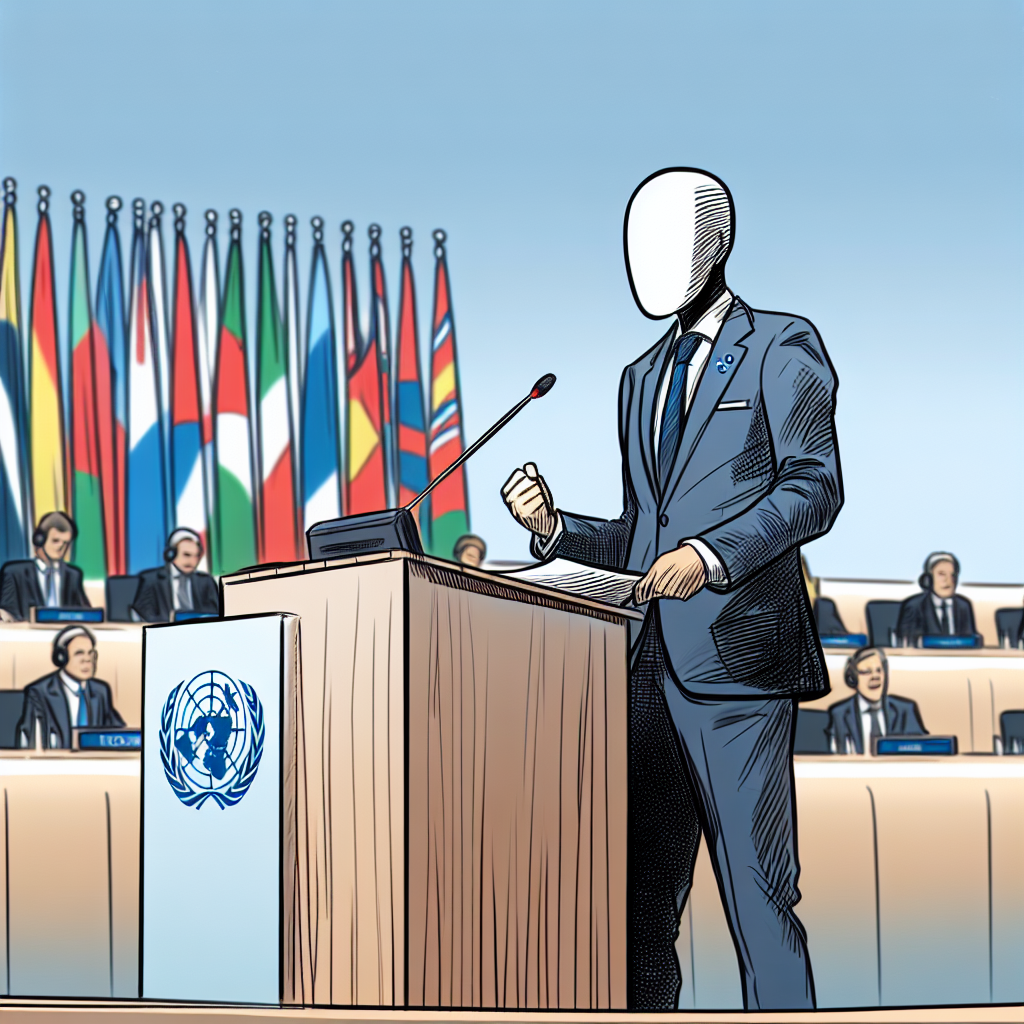India Advocates for Equity and Climate Finance Accountability at CoP29 in Baku
Calls for Enhanced Ambitions and Transparency to Support the Global South Amid Growing Climate Challenges

- Country:
- India
At the 29th Conference of Parties (CoP29) of the UNFCCC Summit in Baku, India, representing Like-Minded Developing Countries (LMDCs), made a strong intervention during the High-Level Ministerial on Climate Finance on November 14, 2024. Shri Naresh Pal Gangwar, Additional Secretary of the Ministry of Environment, Forest and Climate Change (MoEFCC) and India’s lead negotiator, emphasized the urgent need for equitable climate action, particularly addressing the escalating challenges faced by the Global South due to extreme weather events.
A Call for Equity and Differentiated Responsibilities
India's intervention underscored the principles of equity and common but differentiated responsibilities and respective capacities (CBDR-RC) as fundamental to the global response to climate change under the UNFCCC and Paris Agreement. Shri Gangwar noted that decisions at CoP29 would be critical for enabling ambitious mitigation efforts and adaptation measures, particularly for nations in the Global South, where climate change impacts are most pronounced.
He asserted, “We are at a crucial juncture in our fight against Climate Change. What we decide here will enable all of us, particularly those in the Global South, to not only take ambitious mitigation action but also adapt to Climate Change. This CoP is historic in this context.”
New Collective Quantified Goal (NCQG) on Climate Finance
India strongly advocated for developed nations to commit to mobilizing at least $1.3 trillion annually by 2030 in climate finance. The intervention emphasized that these funds should be delivered through grants and concessional finance without imposing growth-inhibiting conditionalities on developing nations.
Shri Gangwar reiterated that the NCQG should remain a unidirectional goal, with developed nations bearing the primary responsibility for providing financial and technological support. The statement firmly opposed attempts to shift the goal into an investment-based framework, which is outside the mandate of the Paris Agreement.
Accountability and Transparency in Climate Finance
India raised concerns over the lack of clarity and transparency in defining climate finance. Highlighting the failure of developed nations to meet their existing commitments, including the $100 billion annual pledge made in 2009, India called for a clear, universally accepted definition of climate finance to enhance trust and accountability.
“We take note of the work carried out by the Standing Committee on Finance, however, there is a need to further work in arriving at a meaningful definition of climate finance,” Shri Gangwar stated.
Developed Nations' Responsibility in Focus
India criticized the underperformance of developed countries in meeting their financial and technological commitments. The $100 billion target, which has been extended to 2025, remains unmet and inadequate in addressing the actual needs of developing countries.
“The $100 billion was committed 15 years ago. We have a common time frame for expressing ambitions every five years. There is a similar need in terms of Climate Finance,” Shri Gangwar said. He expressed hope that developed nations would uphold their responsibilities, enabling enhanced ambitions and ensuring the success of CoP29.
Strengthening the Path to CoP30
India's intervention highlighted the importance of achieving a robust outcome at CoP29 to pave the way for significant progress at CoP30, where updated Nationally Determined Contributions (NDCs) are expected from all Parties.
Additional Highlights from CoP29 Discussions
India emphasized the need for technological support tailored to the evolving challenges of developing countries, particularly in renewable energy, disaster resilience, and climate-smart agriculture.
The Global South countries advocated for more inclusive representation in decision-making processes to ensure that their voices are heard.
Discussions also centered on integrating traditional knowledge with advanced technologies for sustainable climate solutions.
Towards a Unified Global Climate Action
As CoP29 progresses India remains steadfast in its commitment to advocating for a fair, transparent, and inclusive approach to climate action. The intervention reflects India's leadership in representing the Global South, striving for equity and justice in the global fight against climate change.
- READ MORE ON:
- CoP29
- UNFCCC Summit










